Juno is the Best Character in ‘The Descent’, and She Did (almost) Nothing Wrong
You might not like Juno, but if you think she’s a villain, you’re wrong.
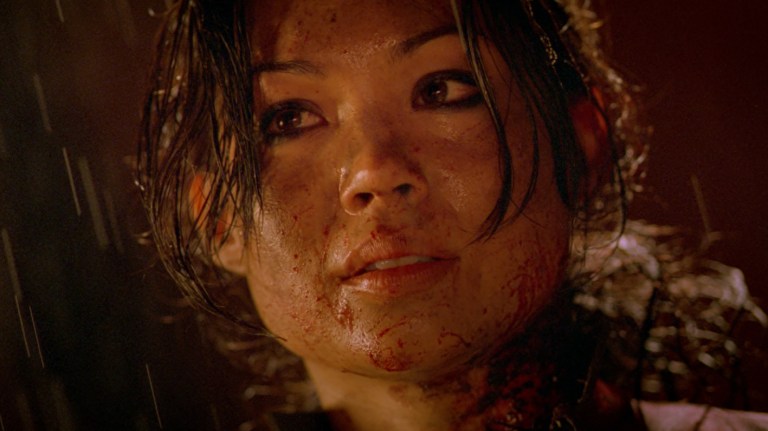
The Descent (2005) is one of the best horror movies of the 2000s, and one of the many reasons why the movie endures as a classic is because of its characters. Juno (Natalie Mendoza) and Sarah (Shauna Macdonald), as the two main characters of the film, stand out for their strengths as well as their flaws. They are both dynamic and interesting characters, but many people who watch The Descent see Sarah as the hero and Juno as the villain. This is not an accurate assessment. There are no true villains in The Descent, nor are there any true heroes.
However, there is a character whose actions speak to her desire to help rather than harm. This character cares more for her friends than they care for her, even when her cares are met with indifference and hostility, and even when her good intentions go horribly wrong. The character who exhibits these admirable yet misunderstood traits the strongest is Juno. Despite being painted as a villain by the characters in the movie and by the assumptions of many viewers, Juno is the best character in The Descent. She tries the hardest to make things right with her friends, and her actions are largely dismissed as selfish based on zero actual evidence. Juno is the closest anyone comes to being a hero in The Descent.
Table of Contents
This article is an in-depth view of Juno flaws and strengths, as viewed on their own and in relation to the qualities of her friends. It is a fair accounting of her mistakes and her wrongdoing, but it also explains her benevolent intentions and everything she does right. Naturally, this article assumes that you have already watched The Descent, so go watch it now if you haven’t. Also, this article only takes into account the story as seen in The Descent, and it excludes anything that happens in The Descent Part 2 (2009).
What was Juno’s Relationship with Paul?
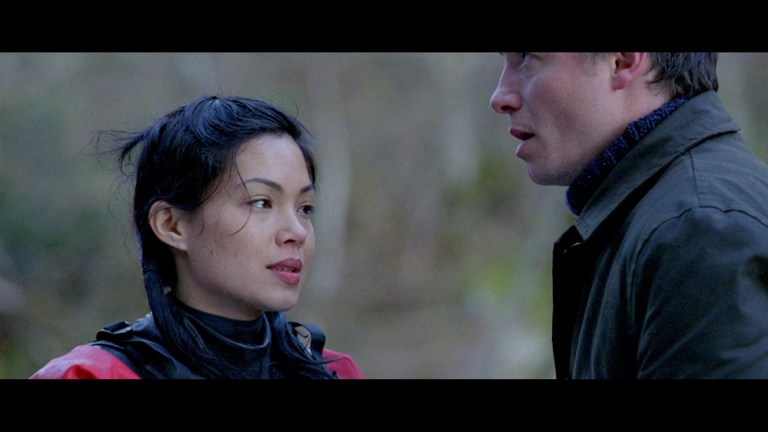
Let’s get this out of the way first since it’s the biggest talking point for people who blame Juno for everything. Juno had a secret relationship with Sarah’s husband Paul. This secret coming to light when Sarah discovers that Juno’s necklace bears Paul’s favorite phrase, “love each day,” is shown to be one of the main reasons for why Sarah attacks Juno and leaves her for dead. But does having a close relationship with a friend’s spouse really warrant a death sentence? Hardly.
The Descent is a horror movie though, so disproportionately violent reactions to perceived transgressions are common. They’re even expected. But here’s the thing; Sarah doesn’t know exactly what kind of relationship it was that Juno had with Paul. Was it physical? Was it romantic? Were they just close friends? Sarah doesn’t know, and neither does the audience. How can we judge someone so harshly if we don’t even know the full extent of what they did or didn’t do?
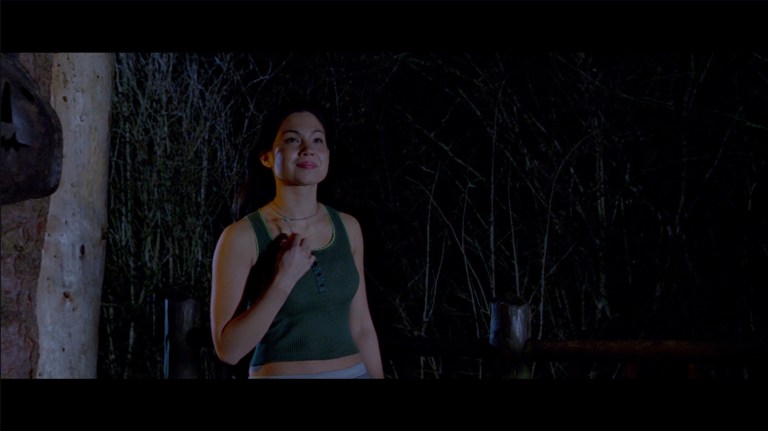
There are three main bits of evidence we can see in the movie with regards to Juno and Paul. First is that Paul helps Juno get out of the river at the beginning of the movie, and Juno has a wistful look on her face when he leaves with his daughter and wife. Second is Juno telling Beth that “we all lost something in that crash” when Beth gets aggressive after she realizes they’re trapped in the wrong cave. Third, and most importantly, is the necklace that Paul gave Juno. The necklace is clearly important to her, but she never articulates exactly what it means to her.
Did Paul and Juno sleep together? Maybe, maybe not. Were they romantically involved? That’s likely, but we don’t know for sure, and we don’t know to what extent. There was obviously a connection between them, but we should all remember that, to quote Emily Dickinson and Selena Gomez, “the heart wants what it wants.” People have only so much control over emotions like this—whether it’s a crush or a deep longing—and Juno shouldn’t be blamed for the way she feels. People can be blamed for the actions they take, but we (and Sarah) have no knowledge of any actions Juno might have taken in her relationship with Paul. She might have done nothing other than accept a gifted necklace from someone she cares about. But regardless of the intensity of Juno’s feelings for Paul, why didn’t she talk to Sarah about it? Well, there could be an understandable reason for that.
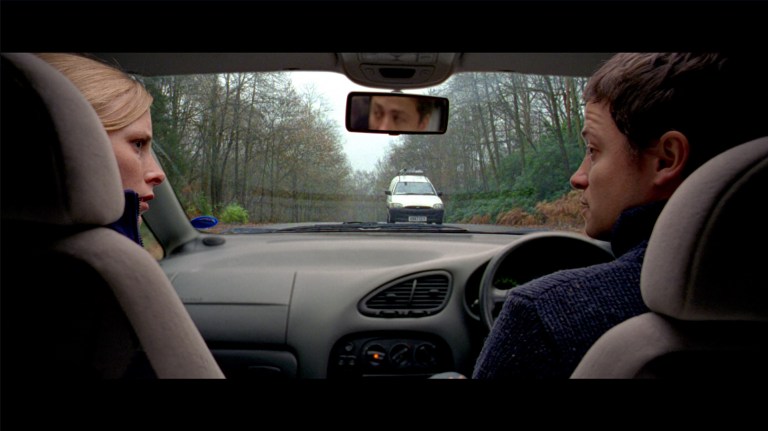
Don’t forget, Paul was also part of the relationship. He’s no longer around to tell his side of the story after the opening scene of the movie, but he definitely had something on his mind when he died (and I’m not talking about a pipe, that was in his mind). Sarah asks Paul why he’s being emotionally distant, and it could be because he doesn’t want Sarah to ever know about his feelings. It’s also entirely likely that he could have been working his way up to telling Sarah that he is in love with Juno. As Sarah’s husband, it would be better for her to hear something like that from him rather than Juno. The friendship between Juno and Sarah would probably be over, sure, but people fall in and out of love. It’s natural. It can be painful, but it happens, and it’s often nobody’s fault.
It’s important to remember that Sarah is the protagonist of The Descent, and the emotional path of the movie is presented to the audience mostly from her perspective. We see Sarah’s pain and struggles, so we are more likely to sympathize with her and take her side whenever conflict arises. If Sarah feels justified in stabbing Juno in the leg and leaving her behind as crawler-bait, even when her reasons are based almost entirely on assumptions and contextless information, then we might feel justified in cheering that action. We might be led to making the same assumptions Sarah does. It’s understandable, but that doesn’t make it morally or factually right.
Everyone Expects the Worst from Juno

Of course, Sarah isn’t the only person to make assumptions about Juno. At one point or another, each of her five friends make statements that indicate feelings of contempt towards Juno. To be fair, Juno isn’t completely blameless and does deserve some of the anger and frustration directed towards her, but we’ll get to those specifics a little later. This section is merely meant to illustrate how Juno is judged by her “friends,” sometimes even before any of her secrets are revealed.
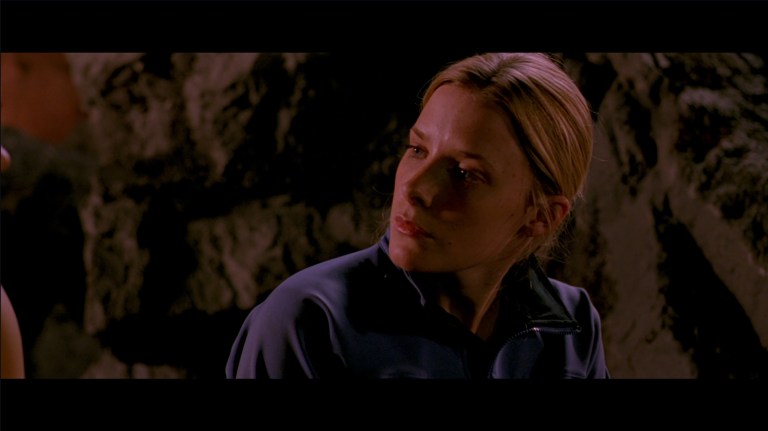
As explained above, Sarah makes mostly baseless assumptions about Juno and Paul’s relationship. Sure, this was after Sarah learned that there was a relationship, but still, she never directly asks Juno about it, and she assumes the worst. Not speaking up is a recurring theme with Sarah. At the beginning of the movie, neither Sarah nor Beth really want to go on the caving trip, but Sarah says she doesn’t want to be the one to tell Juno. Why? Because she doesn’t want to create an awkward situation? Juno would get over it, and their relationship would be better if they were honest and open with each other (this is true for everyone, not just Sarah).
Also, Sarah isn’t forthcoming when she questions Juno about Beth’s death. If she had said that she found Beth dying, Juno could have explained her own shocked reaction to the accident. But instead, Sarah asks a leading question to confirm what she already assumes rather than to try to get Juno’s side of the story. Also, less dramatically, whenever Juno tells Sarah that she wants to name the cave system after her, Sarah condescendingly responds by telling Juno she probably wants to use her own name for the cave. There is no evidence that Juno wants to name the cave after herself. In fact, there is plentiful evidence that Juno cares deeply for Sarah and truly wants to make things right with her friend (more on that in a later section).
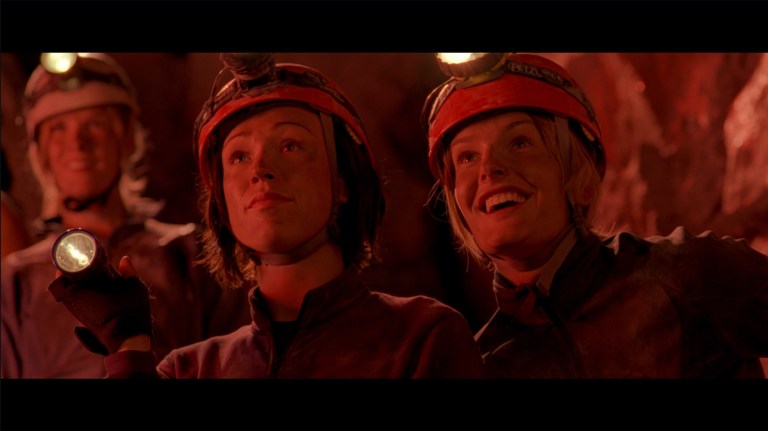
Similarly, Beth is shown to have a poor attitude towards Juno from the beginning. Since Beth is Sarah’s best friend, it makes sense that she would have a more aggressive attitude towards someone she thinks is bad for her closest friend. The look Beth gives Juno and Paul in the movie’s opening scene also indicates that she might suspect something is going on between them. However, if she did suspect something, she never told Sarah. Also, Beth is open about her disdain for Juno, saying she is a “piece of work” who “left pretty quickly” after Sarah woke up after her accident. But did she ever ask Juno how she was feeling? There is no indication that she did, so her judgment feels unusually harsh. She is also quick to jump all over Juno after her deception about the cave is revealed, unleashing all of her pent-up feelings by calling Juno a “selfish cow” and repeatedly being antagonistic towards her afterward. Some anger in that moment is understandable, but Beth had been holding onto that anger long before she ever had a reason to.
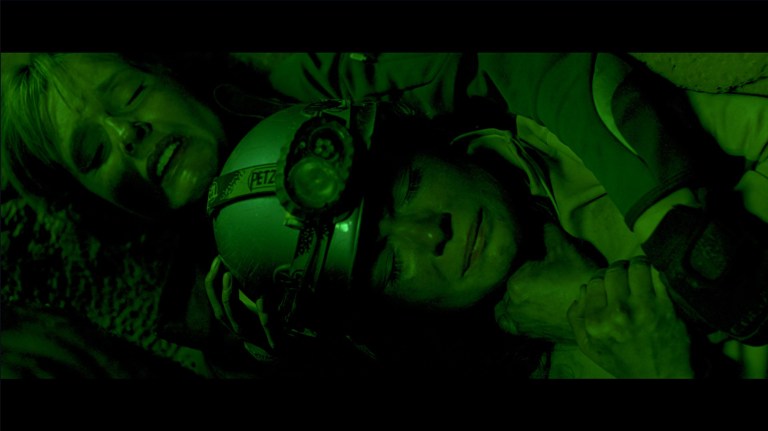
Even sisters Rebecca and Sam join in on the hate, though to a much lesser degree. Rebecca begins to suspect that the cave they’re in isn’t the cave they’re supposed to be in, but she hides her suspicions from Sarah. Then, when it’s revealed that they are in the wrong cave, Rebecca is quick to announce to everyone that “I knew it!” She focuses on anger, and Sam focuses on survival at the expense of Juno. When Sam realizes that the crawlers hunt by sound, and she hears Juno calling out for Sarah, Sam is content to stay hidden as long as the crawlers get Juno and not her. That’s not necessarily directing hate towards Juno, but it does show how Juno is selflessly trying to help people while Sam is thinking primarily about herself.
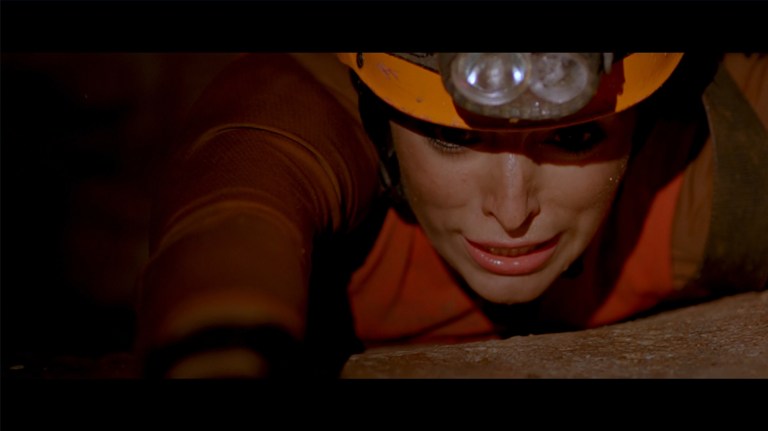
And then there’s Holly. Holly’s pretty cool with Juno, but she never listens to Juno’s warnings. She’s also quick to say “don’t pin this on me” when Juno begins explaining why she switched caves on everyone, but Juno wasn’t pinning anything on Holly. She was just explaining her decision, but no explanation is ever good enough for Juno’s friends.
What Juno Did Wrong

Clearly Juno didn’t do everything right. One of the reasons The Descent is such a good movie is because everyone is flawed. Humans have flaws. They make mistakes. A person’s judgment can be poor, but that doesn’t necessarily make them a bad person.
Juno’s biggest mistake was lying about the cave they were in. She told everyone they were going into Boreham Caverns, but she took them to an uncharted cave system instead. That’s a dangerous and irresponsible thing to do, but it wasn’t done maliciously. When the cave-in happens and Juno is forced to reveal where they are, she is honest about why she did what she did. She wanted to explore a new cave system with her friends. She wanted to bring everyone closer together with a big surprise they would all be happy about. Nowhere in the movie is it indicated that Juno is lying about the good intentions she has, but the initial deception was wrong. Still, it’s not something worthy of being left to die at the hands of crawlers.
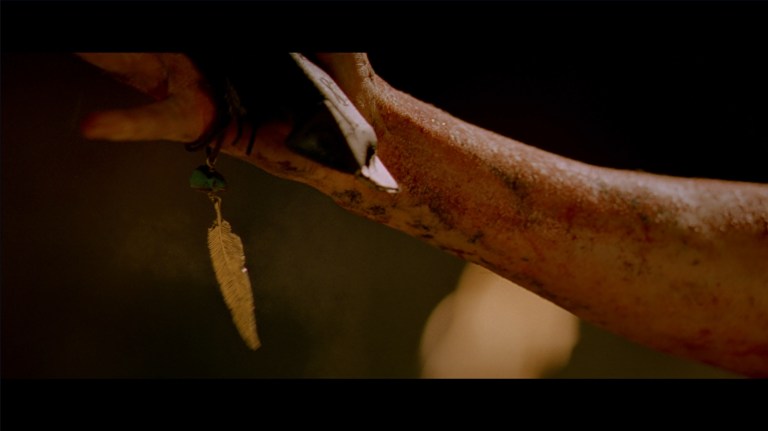
It’s an arguable point that Juno was also wrong for having a relationship with Paul, but that was explained above. We don’t know exactly what their relationship was, and it was more on Paul to tell Sarah than for Juno to say anything. Also, after Paul dies, Juno has no reason to tell Sarah about the relationship. Saying anything after Paul’s death would only upset Sarah more, and it would have ruined Sarah’s memory of her husband for no benefit to anyone. Juno understands that Sarah is having a difficult time mentally dealing with the tragedy of the car accident. Despite Sarah telling Juno “I won’t break,” Sarah absolutely does break before the movie is over. So in this specific circumstance, Juno not saying anything is the better course of action in a general sense. Specifically though, given the circumstances of Beth’s death, Juno not saying anything proved to be a mistake. But it was a mistake made with the best intentions from Juno’s perspective.
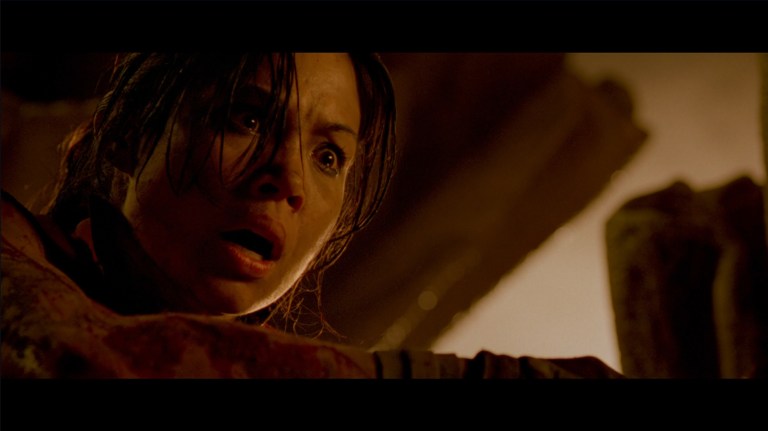
It’s also arguable that Juno was wrong for leaving Beth after accidentally stabbing her in the neck. Frankly, Juno’s reaction is understandable. Juno is in shock after seeing that she accidentally stabbed her friend. She thought another crawler was sneaking up behind her, but it was Beth who was being weirdly quiet (they didn’t yet know the crawlers hunted by sound). Juno froze in that moment, and she didn’t know what to do. It’s difficult to find blame in that reaction. Yes, Beth begged Juno to stay with her, but Juno’s involuntary reaction was to freeze up and back away. She wasn’t in a logical state of mind at that point, and she shows clear remorse later when she hugs Rebecca, and even later when she is questioned by Sarah. Juno leaving Beth is an understandably human response to a horrific situation.
Juno Tried to Apologize for Her Way of Dealing with Trauma
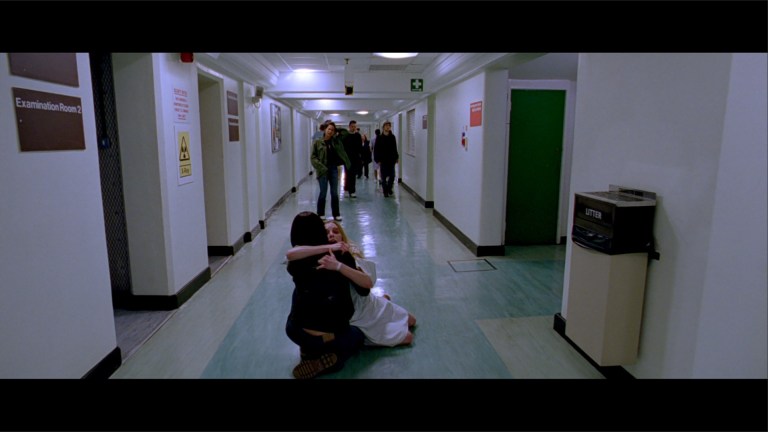
Juno is shown to handle trauma in a private way. After Sarah wakes up after the car accident and learns that her husband and daughter are dead, Juno goes home a short while later. Juno was hurting after the accident too. She was in pain because her friend was hurting, and because she cared for Paul. So she retreated and dealt with her feelings quietly. There is nothing wrong with that. Different people handle trauma in different ways.
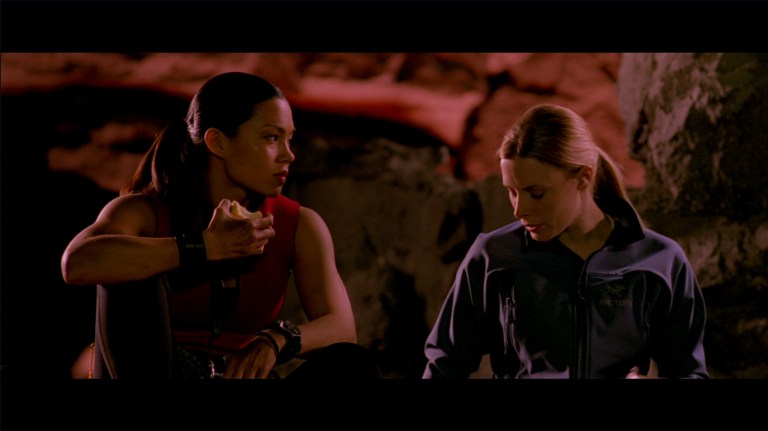
It’s obvious that Juno has a difficult time talking about her emotions. Any time something sensitive is brought up, she tears up and gets quiet. Despite this, Juno makes an attempt to apologize to Sarah for not staying with her longer after the accident. Maybe doing that in a cave in front of all of their friends is the wrong time and place for it, but she was making an honest effort. She was essentially apologizing for how she deals with trauma because she understood that her absence might have adversely affected the feelings of others. What are Juno’s efforts to apologize met with? Silence, then annoyance, and then abandonment as Sarah walks away from her. Sarah apparently isn’t interested in Juno’s feelings. That’s how Sarah responds to difficult situations, so there is no real blame there either. But it does show that Juno is making an effort when no one else bothers to do the same for her.
Juno’s actions throughout The Descent show that she cares for Sarah, even when Sarah doesn’t seem to care about Juno. Juno tries to apologize, she tries to comfort Sarah when she can (like when she calms Sarah as a swarm of bats flies by), and she refuses to leave the caverns until she finds Sarah. She might make mistakes, but she does her best to make up for them. Juno is repeatedly shown to be the most caring friend throughout the movie.
Juno Stays Behind When Everyone Else Flees
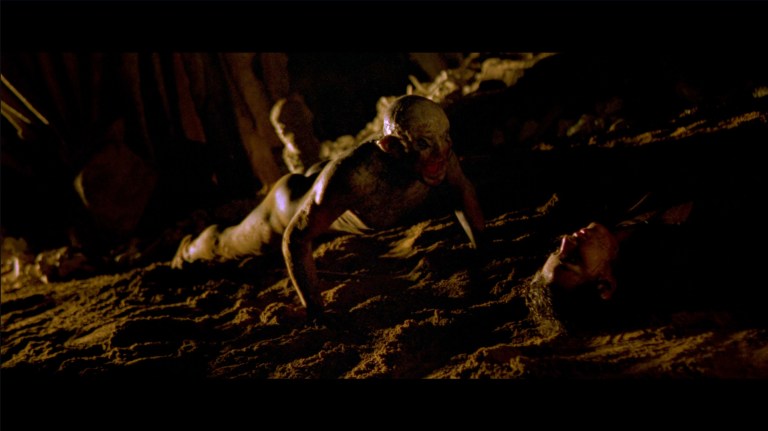
How people handle themselves in a crisis says a lot about who they are. When the crawlers initially attack the six friends, everyone scatters. Well, not everyone. Holly has a broken leg and can’t run, and only one person stays behind to defend her. That person is Juno. Juno fights to protect Holly while everyone else tries to save themselves.
Sarah runs away ahead of everyone. She’s looking out for herself, even outpacing Beth who is running behind and calling for her. Beth (who was helping Holly walk, but dropped her and ran when the crawler appeared) turns around only after she loses sight of Sarah. Sarah ends up all alone. Later, when she hears Juno calling out for her, Sarah ignores her.
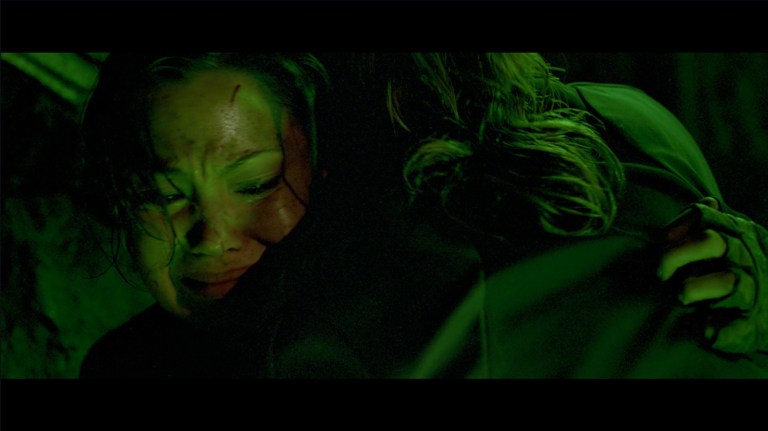
Meanwhile, Rebecca and Sam run away together. They hide, and like Sarah, they are content with leaving Juno to fend for herself even when Juno is calling out for her friends. Their minds are changed when Juno saves Rebecca from a crawler, but they only stick with Juno because they see that she is a capable fighter. And even when they’re with Juno, Rebecca is quick to assume that Sarah is dead, even with zero evidence. Rebecca and Sam are just looking out for themselves.
But, to the end, Juno is always trying to help her friends survive (the ones who have a chance of survival, anyway). She fights for them, and she puts herself in danger for them. Most of them end up dead, but that’s because they either didn’t listen to Juno’s warnings (like Holly and Sam), they weirdly sneaked up on Juno in the aftermath of battle with crawlers which led to an accident (like Beth), or they were simply overwhelmed (like Rebecca). Juno did her best to help everyone, but not everyone in the group was interested in helping others.
Juno Didn’t Intentionally Kill Anyone
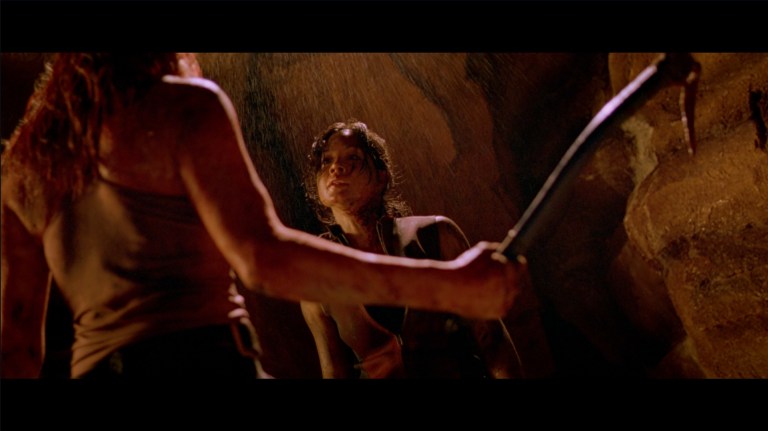
This section is going to begin with a technicality: Juno never technically kills any of her friends. The crawlers get Holly, Sam, and Rebecca. Juno accidentally wounds Beth in a way that would have been fatal, but Sarah is the person who actually kills her. Yes, this is getting maybe a bit persnickety, but it’s meant to illustrate how the movie draws interesting parallels between Juno and Sarah.
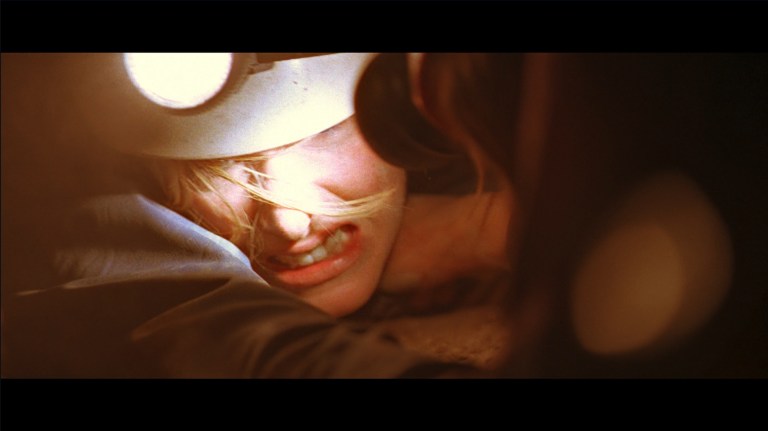
Juno mistakenly dealt a potentially fatal blow to Beth, but Sarah intentionally did the actual killing out of mercy. Juno tried to save her friends and failed, but Sarah never made an obvious attempt to find or save anyone after they became separated. Juno carries a flashlight and kills crawlers with a pickaxe, and Sarah carries a torch and kills crawlers with a bone (and her hands). Juno is submerged in water, and Sarah is submerged in blood. The parallels go on and on, sometimes looking similar, sometimes appearing to be opposites. One glaring opposite is that Juno never kills or wounds any of her friends intentionally, but the same cannot be said for Sarah.
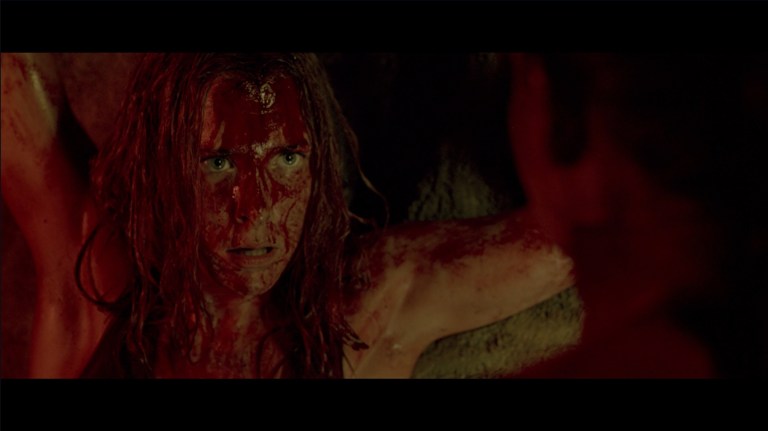
Sarah chooses to stab Juno in the leg, and she chooses to leave her behind as bait for the crawlers. She does this because Beth basically tells Sarah that Juno tried to murder her, and Sarah never confronts Juno in a way that indicates she has any intention of hearing Juno’s explanation. We’ve already established that Sarah expects the worst from Juno, but she never even tries to learn the truth. Sarah also attacks Juno because of the relationship Juno had with Paul, but we’ve already established that Sarah doesn’t actually know what that relationship was. Again, she’s not interested in the truth.
Sarah acts out of anger. Her attack on Juno isn’t about survival necessarily. When Sarah’s stabbing of Juno occurs, they had both just worked together to fight multiple crawlers, and they were successful. More crawlers were closing in, but there was a long break before the next round of crawlers attacked. If they’d worked together, they could have both kept moving forward quietly, avoiding crawlers when they could and fighting them when they needed to. They absolutely could have survived together, and it would have been the smarter option. But Sarah didn’t want to work with Juno. She was angry, and she wanted revenge for what she perceived to be inexcusable transgressions based on skewed information.
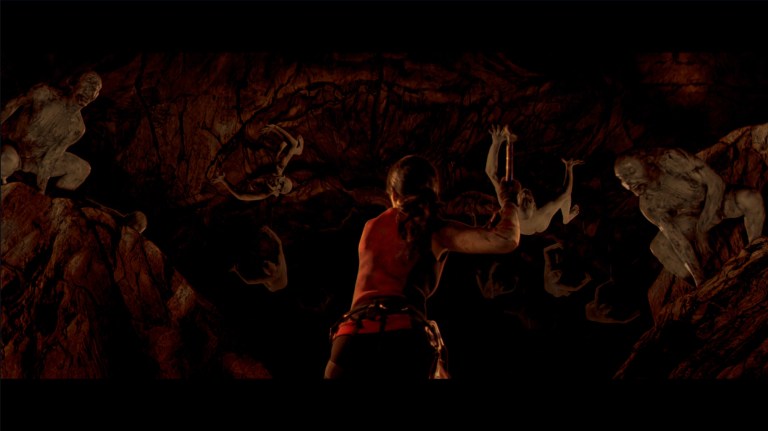
The heartbreaker here is that it’s possible that Juno would have willingly sacrificed herself for Sarah. Juno refused to leave Sarah behind, and she’d already shown that she was willing to take big risks for the good of the group. For example, when the group is forced to cross a huge pit, Juno volunteers herself to cross last so she can retrieve the cams and ropes that they’ll likely need (since Sarah and Beth lost one of the rope bags). Juno put her life on the line for the good of the group when no one else thought about it (Rebecca crossed first, making her risk admirable as well). Juno also goes out of her way to save Rebecca from a crawler when Rebecca and Sam made it clear to each other that they were okay with Juno being eaten if it meant their own survival. So, after seeing how far Juno went to find Sarah after the crawlers attacked, there’s a very good chance she would have given her own life to save Sarah’s if it came to that. But that chance was taken away from Juno, and for no good reason.
Conclusion
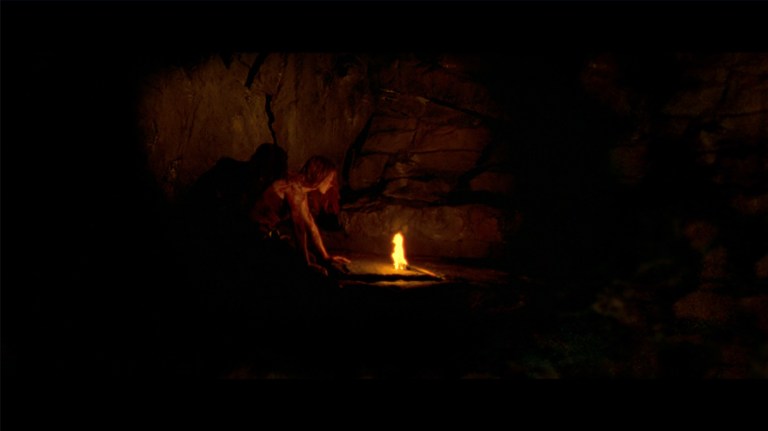
Many viewers see the ending of Juno and Sarah’s time together in The Descent as a moment of justified revenge. But The Descent is not a movie about revenge, it is a movie about Sarah losing her battle with her own grief and anger. The “descent” of the title refers to the literal descent into the caverns, but also to Sarah’s descent mentally. Metaphorically, Sarah’s mental breakdown is abundantly clear in the original ending when Sarah is seen trapped in the cave, smiling at a vision of her dead daughter who isn’t really there. She is trapped in her own mind while being physically trapped inside the cave.
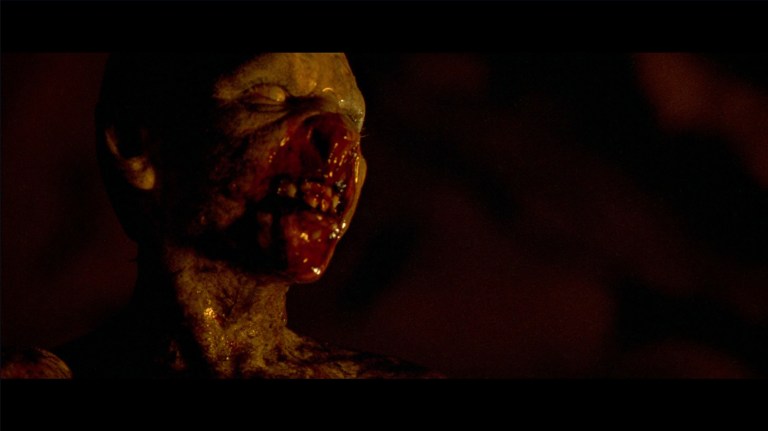
Sarah is overwhelmed by her trauma and completely loses her grip on reality. If we can accept that as the ending, then how can we accept that Sarah’s assessment of Juno is anything close to being accurate? We can’t. The movie is told mostly from the perspective of being sympathetic towards Sarah, but her perspective—especially with regards to Juno—is unreliable. We have to look deeper and more carefully for the truth about Juno, which is something that Sarah has no interest in doing. The truth is, Juno is a good person who made an irresponsible decision that spiraled out of her control. No one tried to help Juno when she was struggling mentally, but she tried to help others when she could.
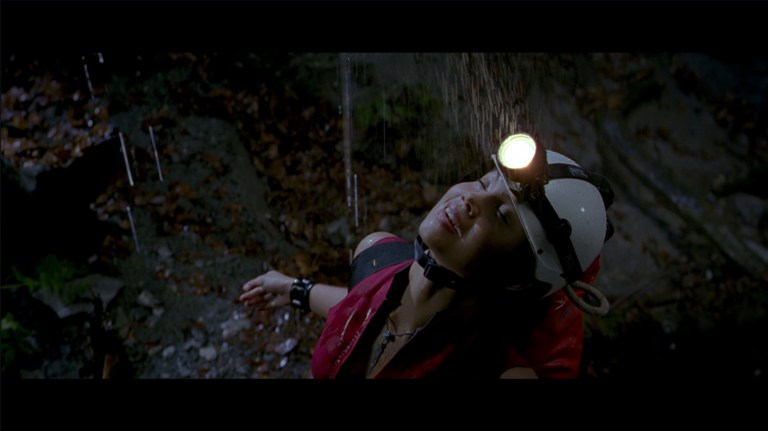
As a character, Juno is the best and most interesting because she tries to make up for her failings, and her intentions are good regardless of the outcomes. No one else tries to change, nor do they try to make up for their mistakes. And really, when you look at everything from Juno’s perspective, she did almost nothing wrong.
